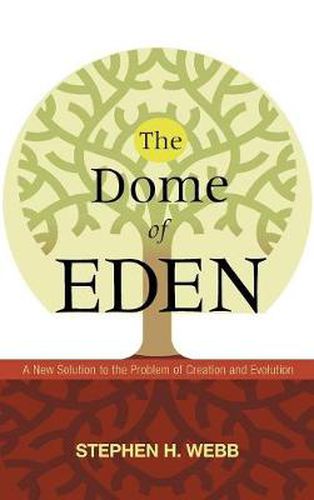Readings Newsletter
Become a Readings Member to make your shopping experience even easier.
Sign in or sign up for free!
You’re not far away from qualifying for FREE standard shipping within Australia
You’ve qualified for FREE standard shipping within Australia
The cart is loading…






This title is printed to order. This book may have been self-published. If so, we cannot guarantee the quality of the content. In the main most books will have gone through the editing process however some may not. We therefore suggest that you be aware of this before ordering this book. If in doubt check either the author or publisher’s details as we are unable to accept any returns unless they are faulty. Please contact us if you have any questions.
What would biology look like if it took the problem of natural evil seriously? This book argues that biological descriptions of evolution are inherently moral, just as the biblical story of creation has biological implications. A complete account of evolution will therefore require theological input. The Dome of Eden does not try to harmonize evolution and creation. Harmonizers typically begin with Darwinism and then try to add just enough religion to make evolution more palatable, or they begin with Genesis and pry open the creation account just wide enough to let in a little bit of evolution. By contrast, Stephen Webb provides a theory of how evolution and theology fit together, and he argues that this kind of theory is required by the internal demands of both theology and biology. The Dome of Eden also develops a theological account of evolution that is distinct from the intelligent design movement. Webb shows how intelligent design properly discerns the inescapable dimension of purpose in nature but, like Darwinism itself, fails to make sense of the problem of natural evil. Finally, this book draws on the work of Karl Barth to advance a new reading of the Genesis narrative and the theology of Duns Scotus to provide the necessary metaphysical foundation for evolutionary thought.
$9.00 standard shipping within Australia
FREE standard shipping within Australia for orders over $100.00
Express & International shipping calculated at checkout
This title is printed to order. This book may have been self-published. If so, we cannot guarantee the quality of the content. In the main most books will have gone through the editing process however some may not. We therefore suggest that you be aware of this before ordering this book. If in doubt check either the author or publisher’s details as we are unable to accept any returns unless they are faulty. Please contact us if you have any questions.
What would biology look like if it took the problem of natural evil seriously? This book argues that biological descriptions of evolution are inherently moral, just as the biblical story of creation has biological implications. A complete account of evolution will therefore require theological input. The Dome of Eden does not try to harmonize evolution and creation. Harmonizers typically begin with Darwinism and then try to add just enough religion to make evolution more palatable, or they begin with Genesis and pry open the creation account just wide enough to let in a little bit of evolution. By contrast, Stephen Webb provides a theory of how evolution and theology fit together, and he argues that this kind of theory is required by the internal demands of both theology and biology. The Dome of Eden also develops a theological account of evolution that is distinct from the intelligent design movement. Webb shows how intelligent design properly discerns the inescapable dimension of purpose in nature but, like Darwinism itself, fails to make sense of the problem of natural evil. Finally, this book draws on the work of Karl Barth to advance a new reading of the Genesis narrative and the theology of Duns Scotus to provide the necessary metaphysical foundation for evolutionary thought.